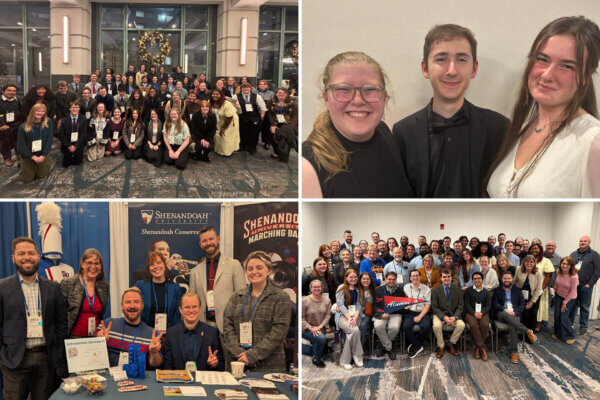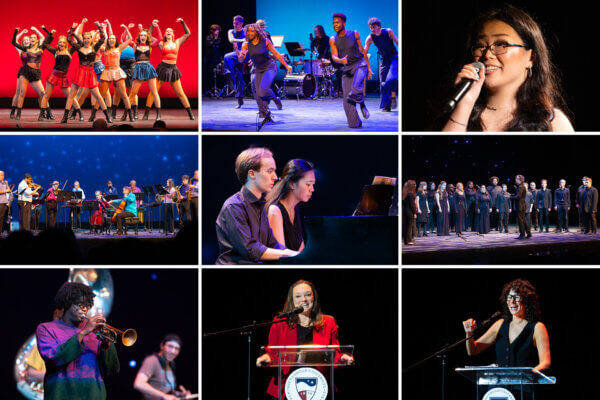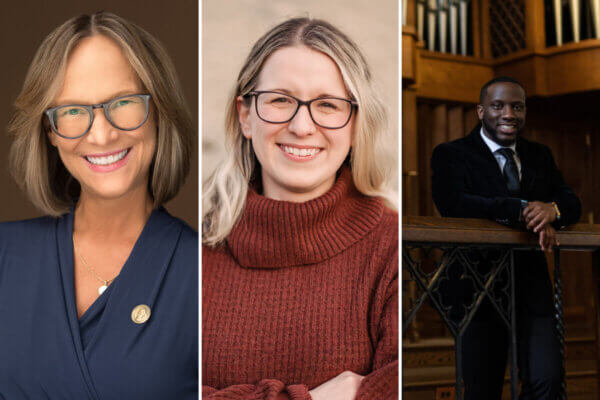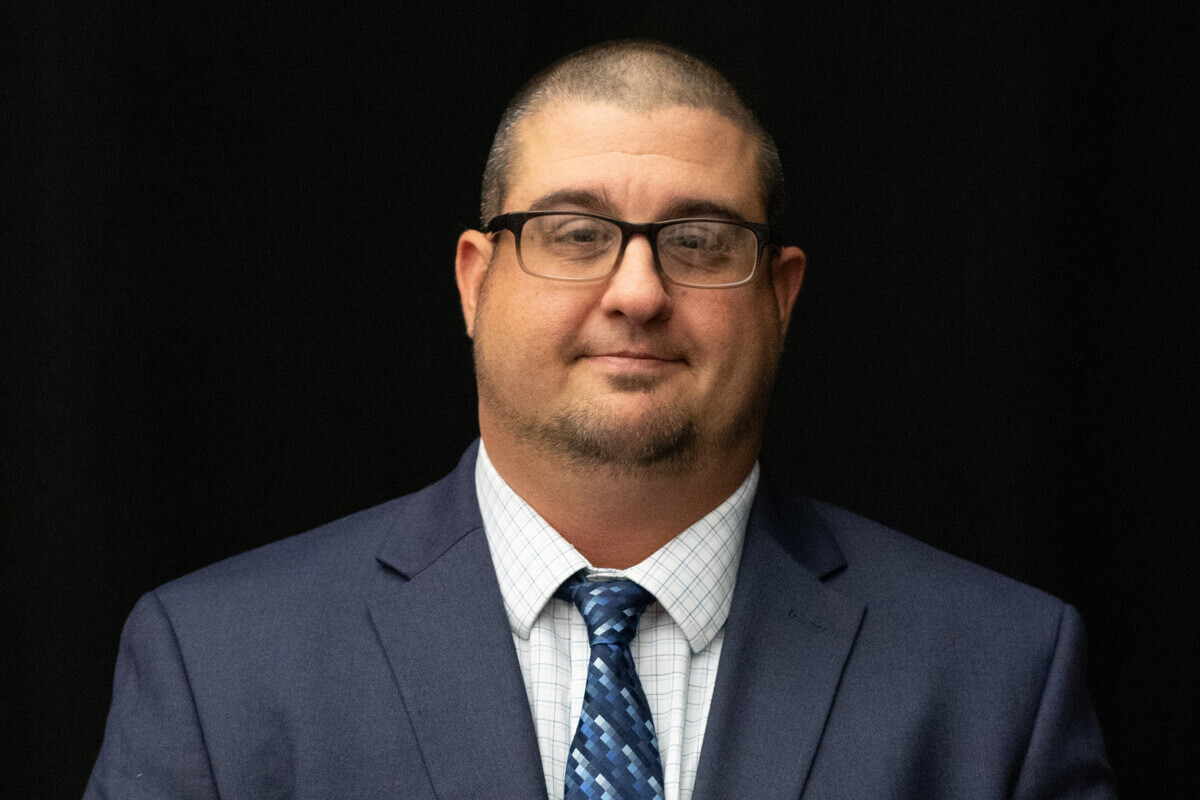
Master of Music Education
THIS PROGRAM IS CURRENTLY NOT ACCEPTING APPLICATIONS.
The Master of Music Education (MME) program is intended for practicing music educators, and includes targeted study in pedagogy, scholarship and musicianship.
The program is uniquely designed to increase students’ skills as reflective musician teachers, and is offered during summer-intensive sessions. Most applicants present a baccalaureate degree in music education or are licensed teachers. Applicants must document a minimum of one year of teaching experience at elementary or secondary school levels in a private or public school. Specific teacher licensure requirements at Shenandoah Conservatory are met through the completion of the undergraduate degree in music education.
The summers-only program is offered during four-week summer-intensive sessions and culminates with a research teaching project. Most students complete their course of study in three summers.
Music Education is one of the Shenandoah Conservatory’s oldest and largest programs and has produced hundreds of music teachers that are changing the musical lives of public school students across the country. Active as teachers, music supervisors, program coordinators and administrators, our graduates are leaders in the field of music education.
Master of Music Education Program
Shenandoah Conservatory’s summers-only Master of Music Education degree is designed for the working music educator. Our program, which offers a music education degree, not an education degree with a music element, encourages educators to reflect on their practices and become even better music teachers.
The Collins Learning Music Suite, located in rooms 209 and 211 of Ruebush Hall, provides enhanced instruction and access to technology for music education students. Undergraduate and graduate music education students learn from each other via courses designed to take place in a collaborative setting. Equipped with multimedia capabilities, the learning suite includes a SMART Board and videocapture (a system for recording learning sessions) for students to document their lab teaching for future reflection and review. It also contains storage cabinets to house instruments specific to instrumental technique courses as well as a variety of Orff and classroom instruments for use in general music classes.
The Collins Learning Music Suite was dedicated on October 4, 2014, in honor of exemplary Shenandoah alumni, Dean Emeritus and Professor Emeritus Charlotte A. Collins ‘85, Ed.D., and Professor Emeritus Verne E. Collins ‘84, Ed.D.
Active as teachers, music supervisors, program coordinators and administrators, our graduates are leaders in the field of music education.
Our program graduates accept positions as public school music teachers, music supervisors, and music coordinators. They also go on to pursue graduate studies in diverse areas of music study and school leadership areas. our five-year job placement rate is 97%.
The Career Services Office provides a comprehensive range of services and resources to assist Shenandoah students in their career search. Services offered include resume and cover letter building, mock interviews, and professional dining etiquette workshops.
First Year
| MUED 601 Research in Mus Ed | 3 |
| MUED 605 Curric and Assess | 3 |
| MULT/MUPP Music Elective | 2 |
| Workshop | 1 |
| Remedial Theory as needed | |
| TOTAL CREDITS | 9 |
Even Year
| MUED 603 History and Philosophy | 3 |
| MUED 620 Contemporary Issues | 3 |
| MUTC/MULT/MUPP Music Elective | 2 |
| Workshop | 1 |
| RTP* | |
| TOTAL CREDITS | 10 |
Odd Year
| MUPP 603 Musician Teacher | 3 |
| MUCO 5XX Conducting | 2 |
| MUTC/MULT/MUPP Music Elective | 2 |
| Workshop | 1 |
| RTP* | |
| TOTAL CREDITS | 9 |
*RTP (1 credit) in Second Summer of Study, RTP (1 credit) in fall (proposal), RTP (1 credit) in spring (teaching), RTP (1 credit) in Third Summer to Finish and Present
Our Music Education faculty are experienced public school music educators and are committed to the professional development of our students.
Shenandoah Conservatory’s prestigious faculty is dynamic, creative, and passionately committed to the highest levels of artistic excellence. A deeply caring community, they mentor students with a wealth of professional expertise, balancing rigorous expectations with compassion and wisdom. At Shenandoah, you will study with, and perform for, award-winning composers, Metropolitan Opera singers, Grammy Award winning conductors and international competition winners. You will learn from leading scholars in music and premiere works created by accomplished dance artists and cutting-edge directors. Shenandoah Conservatory’s faculty embodies the highest levels of professional accomplishment and the deepest commitment to furthering the artistic growth and creative aspirations of students in every discipline.
Admission to Shenandoah Conservatory graduate programs is highly competitive and the audition schedule fills rapidly. Early application and audition registration is recommended.
Shenandoah Conservatory’s music education program embraces pedagogy. Our interactive workshops provide professional development opportunities for practicing music educators throughout the region. Through workshop offerings we explore diverse topics that inspire and enrich. Recent workshops include Music Advocacy, Core National Standards in the Arts, Music Literacy, Conducting Techniques, Orff Strategies in the Elementary General Music Classroom, and Interactive Technologies for Music Teaching and Learning.
Spotlights
Alumni Highlights
I have had many articles published in the field of music and education and have had three books published by Oxford University Press.”
– Alice Hammel ’87, ’99
After graduating from Shenandoah, Alice Hammel returned to complete graduate school. Hammel is passionate about writing and teaching music to students with special needs. She also teaches the flute at her local middle and high school.
Her advice to future students is, “Learn something new every day of your life. Be grateful for where you are no matter where that is. Always thank you teachers.”
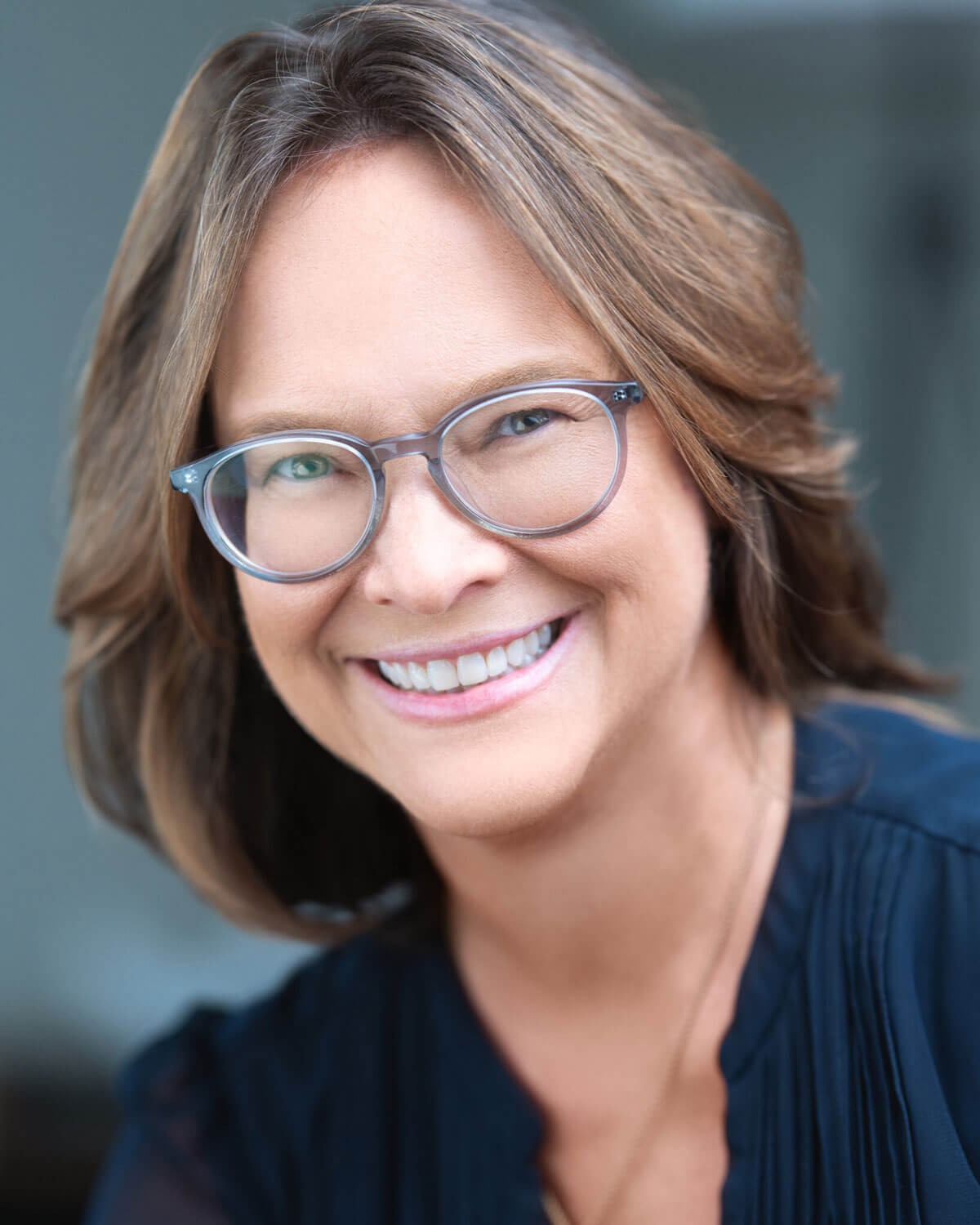
Shenandoah laid a solid foundation of both content and sequencing that has greatly affected my teaching career.”
– Rachel Allnutt ’13
Allnutt is a music teacher at Montgomery County Public Schools and enjoys sharing her appreciation of music with her students.
Being a music educator is a challenging job, but it is also incredibly rewarding.”
– Jessica Blood ’09
Jessica enjoyed having small classes that allowed her to form relationships with her peers and professors, the education classes that gave her perspective as an educator and the ensembles that challenged her as a musician.
Michael Forest ’85, ’86
Michael Forest was a professor of voice at Shenandoah University where he taught applied voice lessons to undergraduates. Forest performed in the world premiere of Jacob Druckman’s “Vox Humana” with the Kennedy Center’s National Symphony Orchestra,” and he also debuted in “Porgy and Bess” at the Metropolitan Opera, performing with world-renowned names, such as Placido Domingo and Luciano Pavarotti at the Metropolitan Opera.
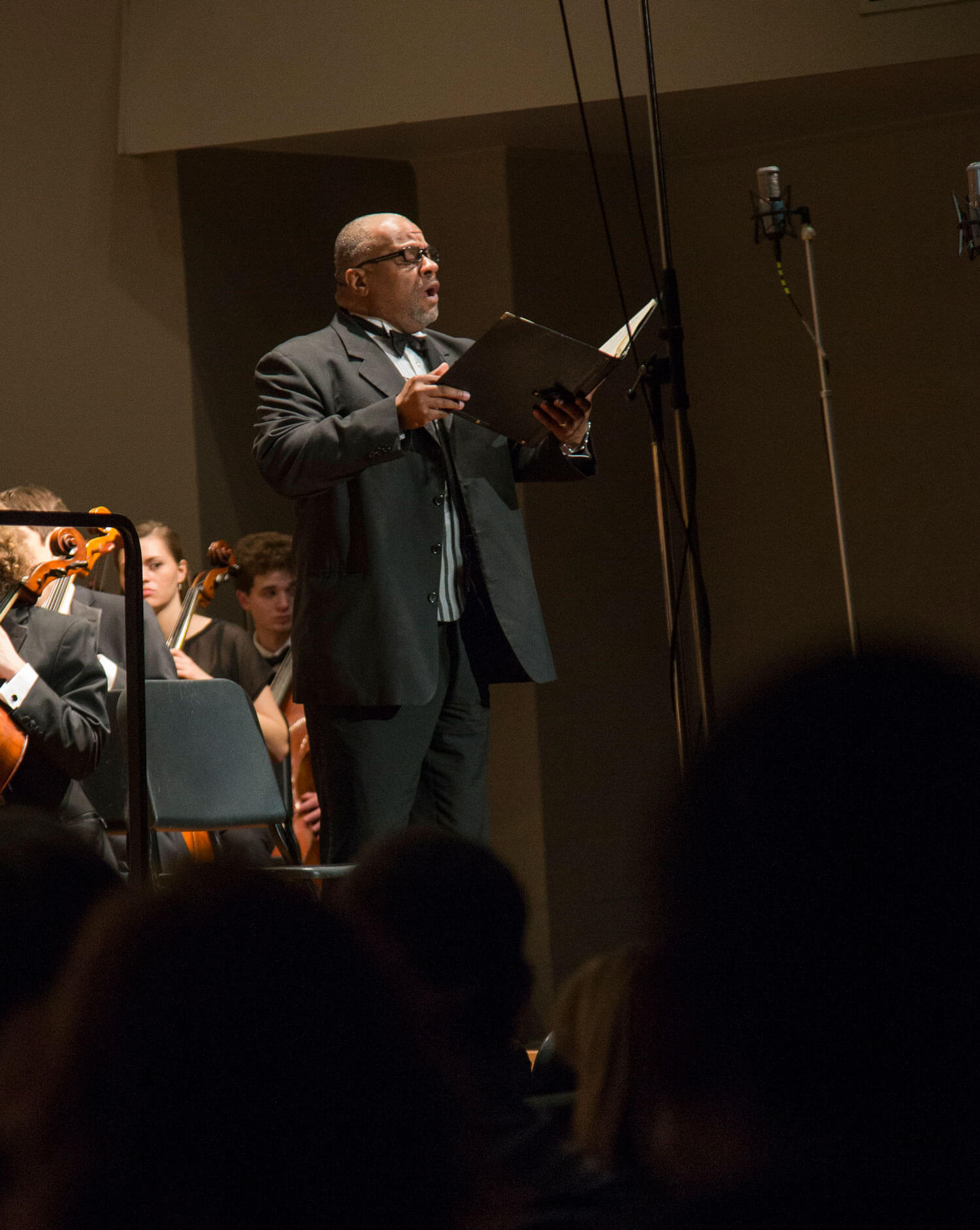
Shenandoah Conservatory gave me all the tools that I needed for a successful career in music education. I came out of school fully prepared to teach.”
– Andrew Lisowski ’10
Andrew Lisowski is an orchestra director at Falls Church High School in Falls Church, Virginia. His responsibilities include preparing for and putting on four major concerts a year, having the ensemble perform at the Virginia Band and Orchestra Directors Association’s High School Orchestra Assessment.

